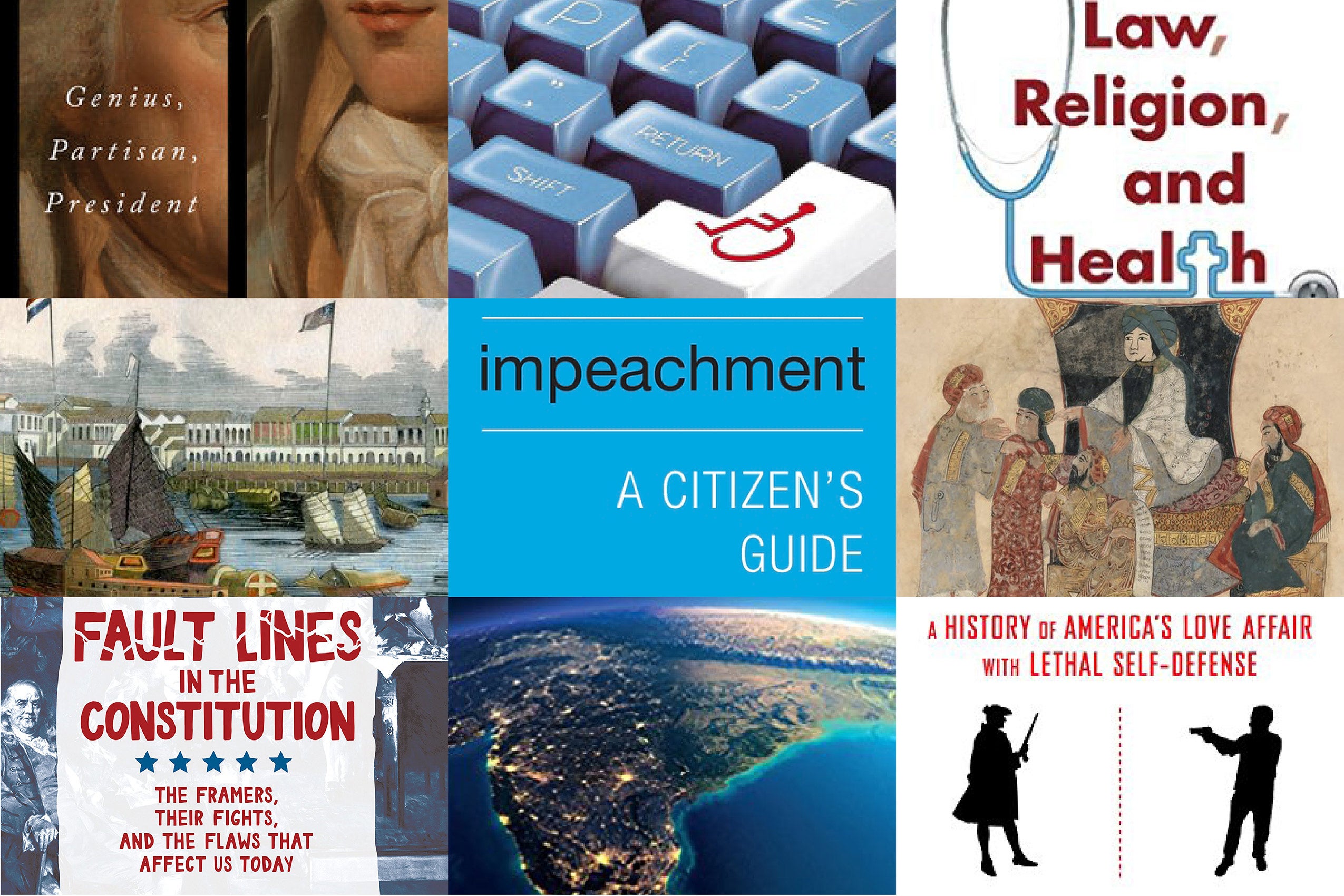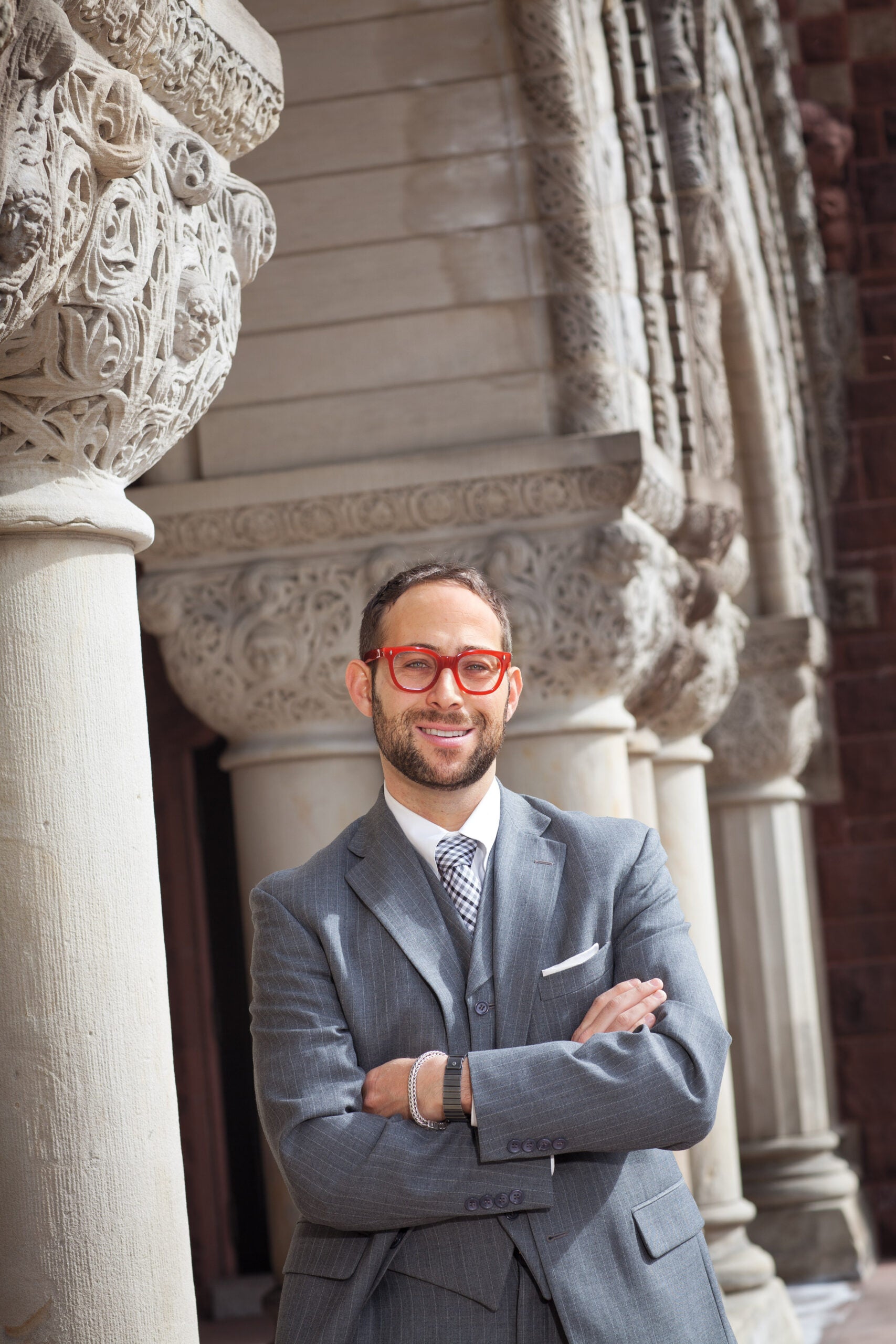People
Glenn Cohen
-
What happens when the parents who created frozen embryos go to war with each other over whether to procreate with them or destroy them? That's the battle now being waged before the Colorado Supreme Court by the now-divorced Mandy and Drake Rooks...The Rooks case is different because it frames the dispute in constitutional terms: Does the right to procreate trump the right not to? "For the first time," says Harvard law Professor Glenn Cohen, there’s a chance "we’ll actually get a ruling about what the US constitution means or doesn’t mean in this context."
-
Court to weigh if one parent has the right to use frozen embryos if the other objects
January 9, 2018
During three emotional days of divorce talks, Drake and Mandy Rooks managed to agree on how to divide up almost every aspect of their old lives down to the last piece of furniture. Only one thing remained: the frozen embryos...“Constitution questions are front and center in a way that they have not been in the other cases,” said Harvard law professor I. Glenn Cohen. And if the judges decide the Rookses’ dispute on such grounds, that would allow it to be appealed to the U.S. Supreme Court — where a ruling would apply nationwide. Cohen said the central issue focuses on how to balance one person’s constitutional right to procreate with another’s countervailing constitutional right to not procreate.
-
India’s Hospitals Are Filling Up With Desperate Americans
January 3, 2018
...Medical tourism thus presents both opportunities and risks. At its best, the industry can help India grow its health care system, using the revenues generated from international patients to improve local care. At its worst, it risks shifting resources to private hospitals catering to elites at the expense of public institutions serving the poor. “What’s the effect on health care for Indians? Here, the answer is the story is kind of messy,” says Glenn Cohen, a professor at Harvard Law School and an expert on medical tourism. “But there’s some reason to be concerned.”
-
On the Bookshelf: HLS Authors
December 14, 2017
This fall, the Harvard Law School Library hosted a series of book talks by HLS authors, with topics ranging from Justice and Leadership in Early Islamic Courts to a Citizen's Guide to Impeachment. As part of this ongoing series, faculty authors from various disciplines shared their research and discussed their recently published books.
-
In an era when too many people remain suspicious of vaccines, one of the world’s largest manufacturers may have made matters worse while trying to control dengue fever. For the past two weeks, Sanofi has been engulfed by scandal in the Philippines after disclosing that its Dengvaxia vaccine could worsen — rather than prevent — future cases of the mosquito-borne virus in people who had not previously been infected. About 830,000 children in the Philippines were vaccinated; now the government is demanding a $59 million refund and probing whether the vaccine was approved improperly...And to restore confidence in vaccines, a reckoning is required. “At a time when convincing people to be vaccinated has encountered increasing resistance, it’s really unfortunate to have this story emerge,” said Glenn Cohen, a Harvard Law School professor who is an expert in health law and bioethics. “The company owes a full accounting of what it knew and when.”
-
2017’s Word Of The Year In Health Law And Bioethics: Uncertainty
December 8, 2017
An op-ed by Carmel Shachar and Glenn Cohen. 2017 was a year of tremendous uncertainty for many areas of public policy. Health care policy was no exception, most prominently with an almost successful push by Congressional Republicans to radically revise the Affordable Care Act (ACA). Medical research and bioethics also faced uncertainty, with the struggle to ethically engage with new technologies and to better understand the boundaries around self-determination. As we look over the past year and anticipate the coming one, the overarching question remains: Is it possible to run a health law and health care system given this level of flux?
-
Glenn Cohen on animals, AI and morality
December 6, 2017
This fall, Glenn Cohen, Harvard Law School professor and faculty director for the Petrie-Flom Center for Health Law Policy, Biotechnology, and Bioethics delivered a talk titled “Are There Non-human Persons? Are There Non-person Humans?,” which explored how law and morality should accommodate animals and artificial intelligence alongside human beings.
-
FDA-Approved Digital Pill Causes Concerns (audio)
November 29, 2017
An interview with Glenn Cohen. The first so-called digital pill has been approved by the Food and Drug Administration. It’s a version of the antipsychotic drug Abilify and contains a tiny sensor that will send a signal to a patch the user is wearing. Advocates say the digital version will keep patients from forgetting to take their medicine. Others are concerned about potential Big Brother components related to ingesting something that could transmit information externally.
-
First Digital Pill Approved to Worries About Biomedical ‘Big Brother’
November 14, 2017
For the first time, the Food and Drug Administration has approved a digital pill — a medication embedded with a sensor that can tell doctors whether, and when, patients take their medicine. The approval, announced late on Monday, marks a significant advance in the growing field of digital devices designed to monitor medicine-taking and to address the expensive, longstanding problem that millions of patients do not take drugs as prescribed...Seeking to address concerns about privacy and coercion, Otsuka officials contracted with several bioethicists. Among them, I. Glenn Cohen, a Harvard law professor, said safeguards adopted include allowing patients to instantly stop physicians and others from seeing some or all of their data.
-
Law School Establishes New Advising, Mentoring Programs
November 13, 2017
Harvard Law School is expanding its advising and mentoring programs four months after a school task force studying diversity and inclusion released a report calling for more advising opportunities on campus...John F. Manning ’82, the school’s recently appointed dean, said the Law School changed its policies to foster more organic and effective advising relationships between students and faculty. "The value added by mentoring and advising is not evenly distributed across the population and the propensity to seek mentoring and advising is not evenly distributed across the population,” Manning said...I. Glenn Cohen, a Law School professor who leads student reading groups, said he thinks the new advising program will help connect students with mentors and advisers more likely to share their specific interests and are more capable of answering their questions. “The reading group topics are connected to areas the students may be interested in, and by having the reading group instructors serve and be advisors for the students, we’d be more likely to get a match between what a particular student’s interest is and what the faculty member’s expertise is,” Cohen said...Marcia Sells, the Law School’s Dean of Students, said the school also instituted a program for students to take faculty out to dinner with all expenses paid by the school, similar to the College’s Classroom-to-Table program. In addition, administrators created a new peer advising program, she said. “We said to [the peer advisors], ‘You are a resource to them, plan a time to meet with them and talk—they didn’t have to take them out to lunch—but just to be there as a sounding board,’” Sells said...Sadie Hillier [`20], a first-year student at the Law School, wrote in an email that she thinks the new faculty advising program is very helpful. She wrote that she thinks she got “lucky” with her reading group and advisor, Law School professor Michael J. Klarman. “I've been provided with an abundance of mentorship opportunities in the last couple of months, and I have seized onto every single one,” Hillier said...Still, David Sackstein ’14 [`20], another first-year student who said he was in Cohen’s reading group, said that he fears some people may not get the resources they need despite the new programs. “There’s always, always, always going to be students who slip through the cracks,” Sackstein said.
-
Your Money or Your Patient’s Life? Ransomware and Electronic Health Records
September 20, 2017
An article by Glenn Cohen, Sharona Hoffman, and Eli Y. Adashi. The mugger's demand “Your money or your life” is a familiar one. However, in an era of vast hospital computer networks and electronic health records, a novel risk to worry about is, “Your money or your patient's life.” This threat, known as “ransomware,” is an increasingly common experience for computer users around the world. The relevance of this hazard to health care became widely apparent on 12 May 2017 after a global attack effected by ransomware named WannaCry. Among those most severely affected were hospitals, pharmacies, and clinics of the British National Health Service.
-
An op-ed by Glenn Cohen. There’s a scientific development on the horizon that could upend the abortion debate: artificial wombs. The research remains preliminary, but in April a group of scientists at the Children’s Hospital of Philadelphia announced amazing advances in artificial womb technologies. The authors explained how they had successfully sustained significantly premature lambs for four weeks in an artificial womb they had designed. This enabled the lambs to develop in a way very similar to lambs that had developed in their mothers’ wombs. Indeed, the oldest lamb — more than a year old at the time the paper was published — appeared to be completely normal.
-
In April, scientists achieved a major breakthrough that could one day drastically improve the fate of babies born extremely prematurely. Eight premature baby lambs spent their last month of development in an external womb that resembled a high-tech ziplock bag. At the time, the oldest lamb was nearly a year old, and still seemed to be developing normally. This technology, if it works in humans, could one day prove lifesaving for the 30,000 or so babies each year that are born earlier than 26 weeks into pregnancy. It could also complicate—and even jeopardize—the right to an abortion in an America in which that right is predicated on whether a fetus is “viable.” “The Supreme Court has pegged the constitutional treatment of abortion to the viability of a fetus,” I. Glenn Cohen, a Harvard Law School bioethicist, told Gizmodo.
-
A judge in Tennessee is giving inmates a unique way to reduce their sentences: Have a vasectomy. The program was issued in May after Judge Sam Benningfield signed a standing order, which permitted inmates to have their sentences shortened by 30 days in exchange for the sterilizing procedure...Glenn Cohen, a professor at Harvard Law School, said the program was a "bad policy," and pointed to prior court rulings, which set a precedent that could make Benningfield's order unconstitutional. "The approach of this judge is constitutionally questionable. In Skinner v. Oklahoma, the Supreme Court indicated it violated the Constitution to impose sterilization as a punishment for a criminal," Cohen wrote in an email. "This case is slightly different, though, in that it involves sentencing."
-
Locked Out Of Asia, Americans Are Turning To Eastern Europe To Hire Gestational Surrogates
July 25, 2017
...The practice of commissioning a cheaper surrogate from a poorer country has long been a controversial one...While it’s impossible to know “what’s presented to you versus what’s really occurring,” Harvard Law School Professor I. Glenn Cohen said, fertility tourists should ask about the welfare of surrogates, including the conditions of their housing, how much of the fee they’re allowed to keep and whether they’ll be penalized for getting an abortion if something goes wrong with the pregnancy. The commissioning couple also should ask about guarantees that their sperm and eggs will be used to make their embryos. Additionally, they should investigate the parentage laws of the country they’re visiting ― and returning home to ― and whether both people in a same-sex marriage will be listed on the birth certificate.
-
Harvard Law Professor [Glenn Cohen] joins Sean to discuss a study he and a Harvard group did on player safety in the NFL, how the game can be made more safe, and the future of football.
-
Reading the Fine Print in DNA Kits
May 26, 2017
**Correction: This story was misattributed to Alex Whiting in yesterday's News@Law. An interview with Glenn Cohen. DNA kits are very popular these days with people wanting to know what countries their ancestors came from. But before seeking out the secrets of your family tree, make sure you read the fine print.
-
Reading the Fine Print in DNA Kits
May 25, 2017
An interview with Glenn Cohen. DNA kits are very popular these days with people wanting to know what countries their ancestors came from. But before seeking out the secrets of your family tree, make sure you read the fine print.
-
Faculty Books in Brief—Spring 2017
May 18, 2017
The concept of speech is typically defined as the communication of thoughts in spoken words. Yet the authors note that First Amendment protection of speech is far broader, covering nonrepresentational art, instrumental music, and even nonsense—individual topics that Tushnet, Chen, and Blocher focus on (in that order) in the book.
-
Nearly 40 years after the world was jolted by the birth of the first test-tube baby, a new revolution in reproductive technology is on the horizon -- and it promises to be far more controversial than in vitro fertilization ever was. Within a decade or two, researchers say, scientists will likely be able to create a baby from human skin cells that have been coaxed to grow into eggs and sperm and used to create embryos to implant in a womb...Three prominent academics in medicine and law sounded an alarm about the possible consequences in a paper published this year. “I.V.G. may raise the specter of ‘embryo farming’ on a scale currently unimagined, which might exacerbate concerns about the devaluation of human life,” Dr. Eli Y. Adashi, a medical science professor at Brown; I. Glenn Cohen, a Harvard Law School professor; and Dr. George Q. Daley, dean of Harvard Medical School, wrote in the journal Science Translational Medicine.
-
Harvard’s Advice for NFL Player Health and Safety
May 16, 2017
...The sport of football, in 2017, is in a state of intense self-scout. The reasons are many: self-preservation, love for the game, fear of the game, concern for the livelihood, a desire to find concrete answers to nebulous questions. Etc. It’s in this landscape that Harvard researchers released a new report today about the health and safety practices for players at the game’s highest level. It’s part of the Football Players Health Study, a long-term project funded through the NFL Players’ Association by money set aside in the 2011 collective bargaining agreement...“We are in a moment where [because of] people’s attitudes toward football and toward the health risks of football, these conversations have to happen,” says I. Glenn Cohen, Harvard Law School professor and a co-author of the study.


